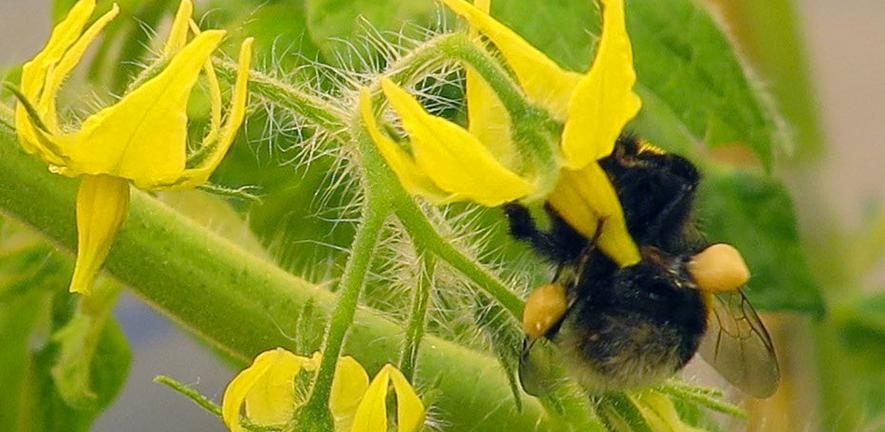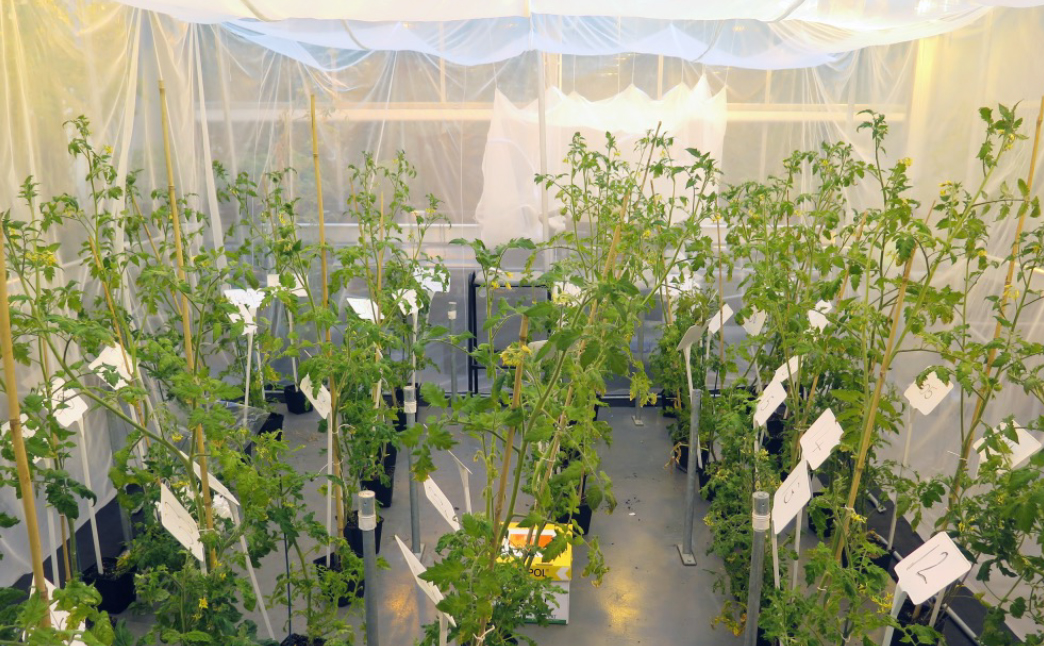
Submitted by Anonymous on Mon, 27/02/2023 - 14:22
Virus infection helps make tomato plants more successful fathers
Gene flow boost may aid development of virus-susceptible plant populations
Dr Alexandra Murphy and her colleagues in the Virology and Molecular Plant Pathology group have discovered that bumblebees can preferentially boost the transfer of male genes in virus-infected tomato plants, which in turn may aid the development of virus-susceptible plant populations.
The researchers investigated bumblebee pollination in cucumber mosaic virus (CMV) - infected tomato plants. They found that once a bumblebee had visited an infected tomato plant, the bee showed a strong preference to visit plants that have not been infected, thereby carrying pollen (which contain the male genes) from infected to non-infected plants and boosting male reproductive success – making the parent plants more successful fathers.
‘The bees that first visited flowers of infected plants showed a clear bias subsequently towards visiting non-infected plants and avoiding further visits to infected plants,’ said Dr Murphy.
‘This bias may be caused by distasteful substances accumulating in the pollen or differences in, for example, the tactile cues of the flower, or by other factors. Whether the bees have rapidly learned to dislike flowers of infected plants, if the infected plant flowers produce something that bees instinctively dislike, remains to be investigated in future work.’
CMV is a common virus disease of tomato - stunting growth, limiting yields and reducing incomes - in many parts of the world. It is transferred between plants by aphids, not by bumblebees, and the pollination caused by the bees does not spread the disease.
However, the work shows that the virus can increase ‘gene flow’ between its hosts. Gene flow can promote the spread of new genes or gene variants throughout a population of organisms, which may help evolution of a new species, but it can also act as an ‘evolutionary glue’ that limits genetic diversity within a species by making sure that genes are shared between related organisms and ensuring they remain similar enough to each other to continue to interbreed.
‘We think that by making infected plants ten times better at transferring their pollen and the genes contained in the pollen to other plants, the virus is favouring the ‘evolutionary glue’ aspect of gene flow. It will promote the dissemination of plant genes, including those that make plants susceptible to the virus. Inadvertently, the virus is engendering the production of offspring plants that will be susceptible hosts for the virus, and diluting the effect of any genes in the plant population that might enable plants to be resistant to the virus.’ said Dr Murphy.
Links
Murphy, A.M., Jiang, S., Elderfield, J.A.D., Pate, A.E., Halliwell, C., Glover, B. J., Cunniffe, N.J., Carr,, J.P. 2023. Biased pollen transfer by bumblebees favors the paternity of virus-infected plants in cross-pollination. iScience. https://doi.org/10.1016/j.isci.2023.106116
Dr Alexandra Murphy - https://www.plantsci.cam.ac.uk/directory/murphy-alex

